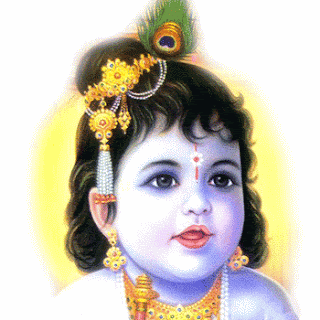India Arrives ...
Courtsey: SWAPAN DASGUPTA (As published in TOI, Sunday)
There were two powerful images of India that came through from Sydney Cricket Ground last week. The first was a visibly irate Harbhajan Singh in a verbal altercation with Andrew Symonds. The second was a very composed but undeniably haughty Anil Kumble throwing a variant of Bill Woodfull’s legendary remark on Bodyline back at the Australians: “There are two teams out there; only one is playing cricket.” Cricket, once a metaphor for life, has increasingly become associated with the national character.
There were two powerful images of India that came through from Sydney Cricket Ground last week. The first was a visibly irate Harbhajan Singh in a verbal altercation with Andrew Symonds. The second was a very composed but undeniably haughty Anil Kumble throwing a variant of Bill Woodfull’s legendary remark on Bodyline back at the Australians: “There are two teams out there; only one is playing cricket.” Cricket, once a metaphor for life, has increasingly become associated with the national character.
In the heydays of socialism and the shortage economy, it is unlikely an Indian player would have reacted to Australian sledging the way Harbhajan did. It is more inconceivable that the captain would have had the temerity to call the rival team a bunch of cheats — which is what Kumble did with all the imperiousness at his disposal. Accosted by ticklish problems with possible racial overtones, Indians of an earlier generation — they would have been horrified by Sourav Ganguly’s shirt-waving act at Lord’s — would have fallen back on pretensions of moral superiority and walked away from a fight. We didn’t instinctively love turning the other cheek; nor were we that ridiculously committed to Mahatma Gandhi’s legacy. Yesterday’s India was defensive because it was irrelevant.
Invoking the Upanishads was just a cloak for our inability to deliver a well-aimed retaliatory blow. Before the mid-1990s, India was a bit player. There were individual Indians who counted for something but India was either the exotic backpacker’s paradise or, in the infamous words of US Ambassador Daniel Patrick Moniyan, “a country whose principal export is communicable disease”. Today, Kumble’s haughtiness counts more than Jawaharlal Nehru’s preachiness because it is backed by real clout. Kumble’s calibrated snarl and the collective outrage of India’s cricket fans are heard with respect because India dominates the cricket economy. Nehru’s refinement had nothing tangible to back him. Between the India of the Nano and the India of the Ambassador is the saga of many wasted decades. It is tragic that the significance of the boisterous assertion of swabhiman (self-esteem) by India’s cricketosphere isn’t understood by our political class. Caught in a time warp, many of those who made policy pronouncements at the Pravasi Bharatiya Sammelan didn’t realise the changed equations between India and its diaspora. Earlier India looked to the nonresidents to bolster a money-order economy, invest some spare cash and be charitable to our impoverished travellers. Today, it is the NRIs and PIO card-holders who are basking in the reflected glory of a rampaging India. Malaysian Indians want New Delhi to be a protective shield against xenophobic Islamism; doctors in the UK feel Whitehall should be told to not test Indian patience beyond a point; and techies in the US want India to leverage its strategic clout for their benefit.
It is not that diplomacy should be abruptly revamped to put the diaspora on top. New Delhi just needs to realise that it doesn’t behove an energised India to box below its class and stay in the Third World. In today’s world, it pays to be brash; it’s a sign of arrival. There is squeamishness and a pronounced inferiority complex that mark the dealings of older Indians with foreigners. They still carry the burden of servitude and deprivation. Most politicians, including those professing Hindu nationalism, suffer from this disability — witness their awkward body language during overseas visits.
Can you imagine Manmohan Singh telling Chinese Premier Wen Jiabao in a Kumble-like manner to stop needling India in Arunachal Pradesh? Political India lives in mental captivity; emerging India believes the strong shall inherit the earth. The merger of politics and swabhiman is overdue.

Comments